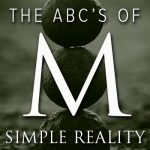
A truly moral person expresses and experiences what Jesus called the Gospel (the good news), living in the present moment expressing our True self with compassion for ourselves (love thyself), all others (love thy neighbor), and Creation (love thy God). Moral behavior involves focusing our energy on serving others and nurturing our environment in creating a sustainable human community.
“Virtue ethics revolve around the idea of the ‘good life.’ Consider, for instance, Homeric arête (excellence), Socratic self-knowledge, Aristotelian friendship and phronesis (wisely applied knowledge, practical wisdom), Christian faith, hope and love. Plato advised turning our attention to the idea of pure Goodness, which might guide our own lives through disciplined attention to purification of the intellect and passions. Augustine believed that only divine grace might bestow the power to act virtuously, but he advised that prayer and a contemplative religious life would help achieve grace. Kant argued that virtuous people act precisely from, and because of, respect for moral law which is universalized. Knights of the Round Table and Victorian gentlemen had their respective codes for a life of virtue, and our own era seems to have evolved to the position that in a pluralistic society virtue comes in various forms and standards, of which tolerance of diversity is itself a cardinal virtue. There is simply too much variation in the history of social orders and accompanying philosophical theories to suggest a coherent ‘doctrine’ of virtue.”[i]
In P-A there is no good and bad. “Moralistic judgments are always based in anxiety. They sound high and righteous, but they come from a small, worried, and barely concealed desperation.”[ii]
The Tao encourages us to transcend the illusions associated with the pursuit of plenty, pleasure and power associated with those energy centers of the false-self survival strategy. Moral behavior enhances life and requires that we cease our identification with the false self, with our mind, body and emotions.
“The man of Tao remains unknown. Perfect virtue produces nothing. ‘No-Self’ is ‘True-Self.’ And the greatest man is Nobody.”[iii]
[i] Tauber, Alfred. Henry David Thoreau and the Moral Agency of Knowing. Los Angeles: University of California Press, 2001, p. 167.
[ii] Moore, Thomas. Dark Nights of the Soul. New York: Gotham, 2004, p. 110.
[iii] Teasdale, Wayne. The Mystic Heart. Novato, California: New World Library, 1999, p. 151.


